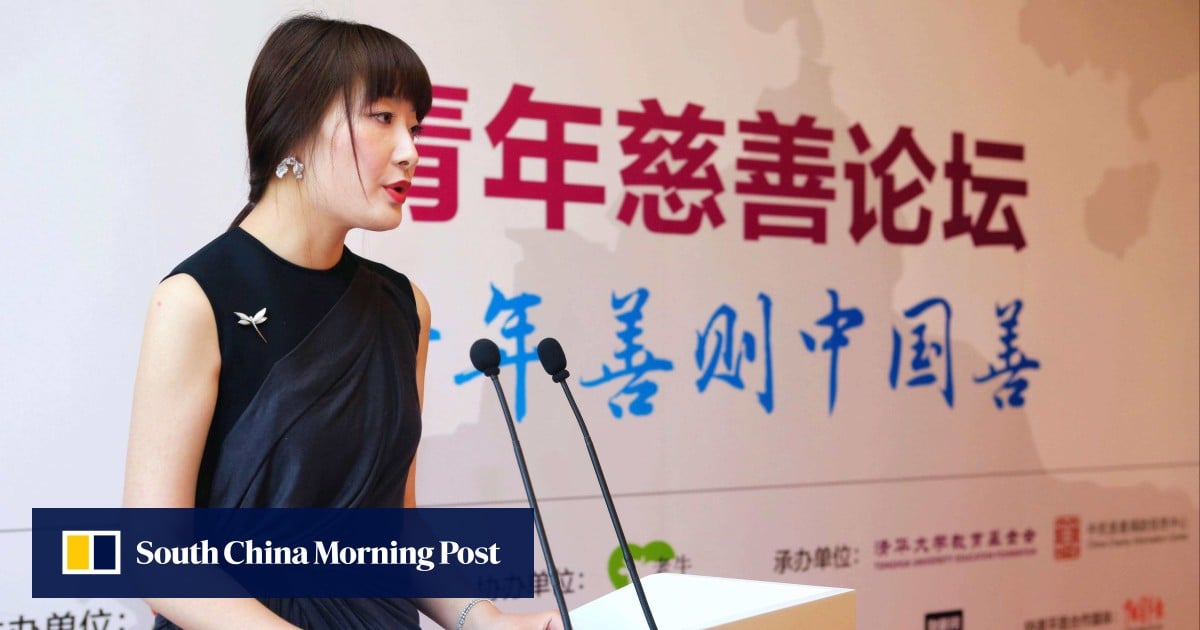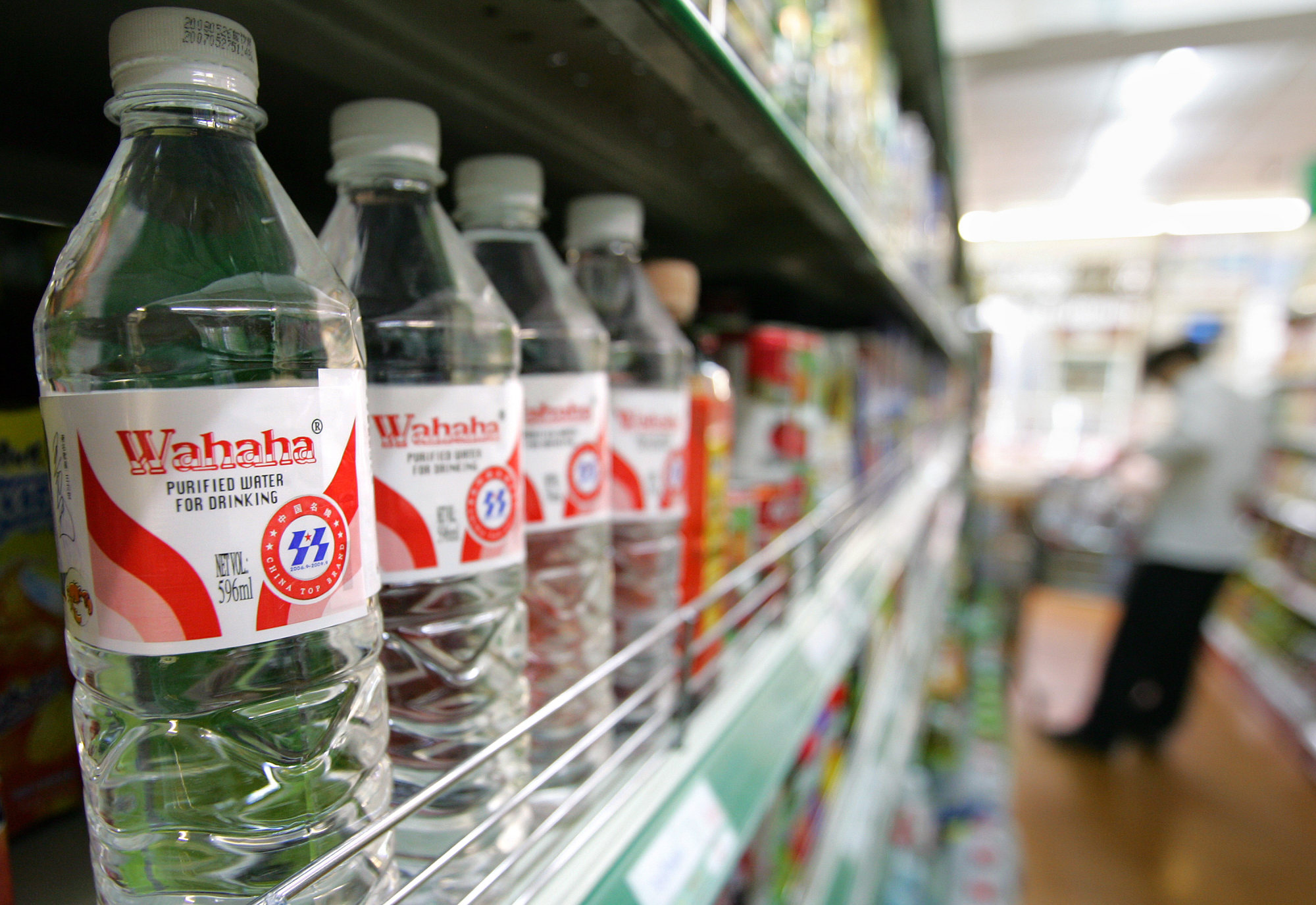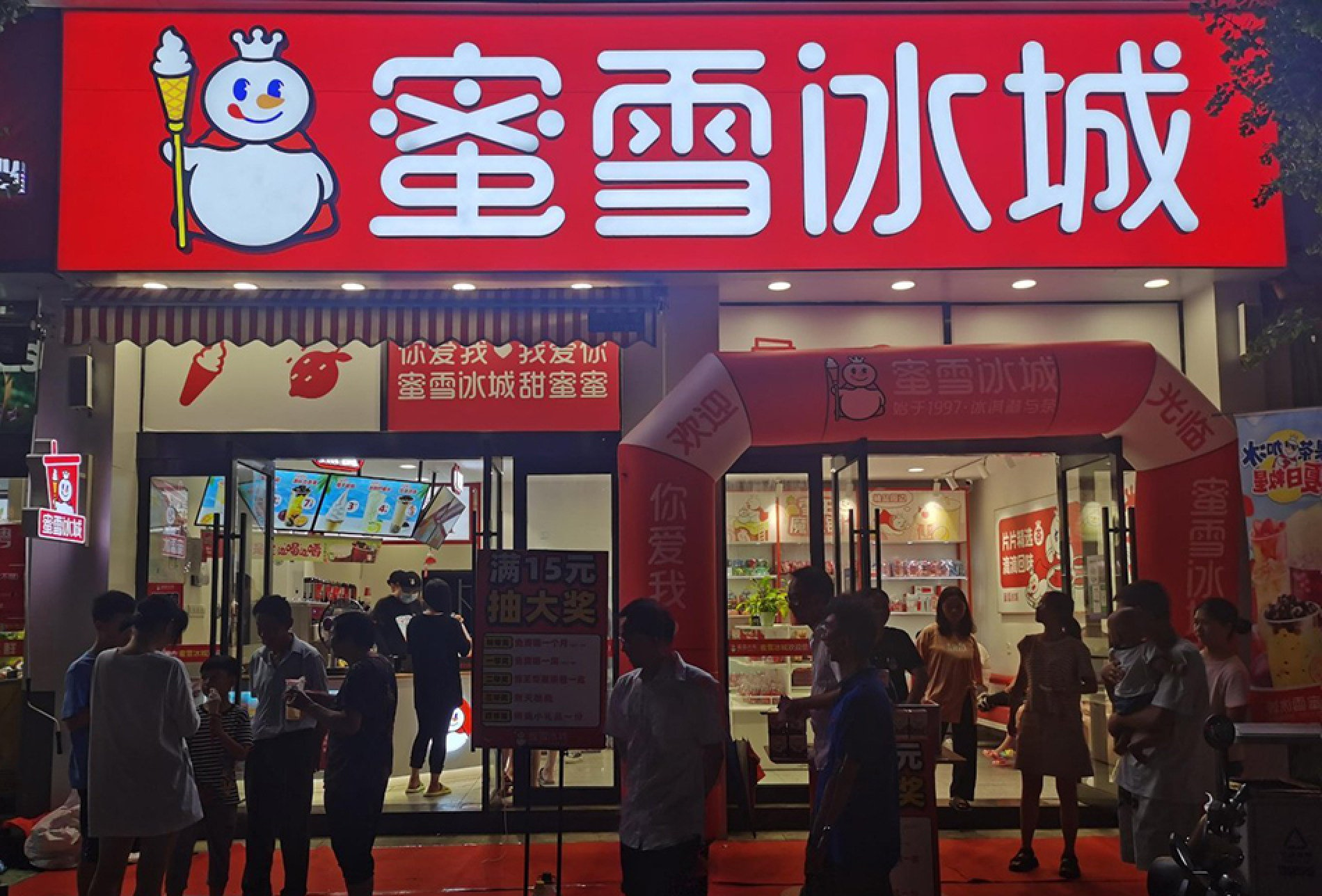
28 Mar China’s ‘Princess of Wahaha’ Zong Fuli looks to revive US$2 billion family beverage business after founder’s passing
It will not be easy for the 42-year-old heiress, who’s poised to take over an empire fighting for relevance. Sales at the family’s Hangzhou Wahaha Group have fallen in an increasingly competitive market, and another beverage tycoon, Nongfu Spring’s Zhong Shanshan, has become China’s wealthiest person.
“She is facing different difficulties ahead,” said Suheng Wu, business analyst at Daxue Consulting in Shanghai. “Consumer demand is changing, and the market competition is intensifying with new domestic and international brands emerging.”
Privately-held Wahaha, which means “laughing child” in Chinese, has been slow to adapt to consumers’ changing tastes and habits, losing business to online shopping. While other brands have innovated and gained a following, Wahaha’s novelties have failed to get much clout.

The company’s sales dropped 35 per cent from a high in 2013 to 51.2 billion yuan (US$7.1 billion) in 2022, the last year for which the data are available, according to the All-China Federation of Industry and Commerce. Revenue at Nongfu, which went public in Hong Kong in 2020, climbed 62 per cent in the five years through 2022 and another 28 per cent in 2023 to 42.7 billion yuan.
Zong Qinghou, Chinese billionaire founder of Wahaha drink group, dead at 79
Zong Qinghou, Chinese billionaire founder of Wahaha drink group, dead at 79
At stake is a family fortune worth at least US$2.2 billion, a fraction of the US$20 billion it was in 2012, according to the Bloomberg Billionaires Index. That is based on Qinghou’s 29.4 per cent stake in Wahaha, and her full ownership in Hongsheng Group, a drink and packaging-service business she has helmed since 2007 and has used to launch her own brand of tea drinks, KellyOne.
Wahaha did not reply to requests for comment for this story.
Kelly Zong, a graduate of international business from Pepperdine University in the US, started at Wahaha with a stint at one of the empire’s factories to learn how to manage production. She rose through the ranks, eventually becoming vice chair and general manager in December 2021.

Recently, she has been helping the company develop marketing strategies to tap young consumers: She picked a new brand ambassador, has placed products on TV shows and hired influencers to live stream Wahaha’s products.
The only child is now expected to take over the chair title that her father held at the time of his death last month. The Zong family is part of a succession wave that has been taking place as China’s first generation of private entrepreneurs moves on.
Zong Qinghou founded Wahaha’s predecessor in 1987 with a US$22,000 family loan and turned it into a multibillion-dollar business in the boom years that propelled China’s middle class. Its milk drinks became particularly popular in the 1990s as parents with increasing spending power sought to provide better nutrition for their single child.

By 1996, he had formed several joint ventures with French dairy giant Danone. They soon fell out, triggering years of discord and a flurry of lawsuits that eventually required the governments’ intervention. When Danone capitulated in late 2009, the elder Zong bought its stake, turning him into China’s richest person with a fortune estimated at more than US$20 billion.
Wahaha, which also makes bottled water, has since developed carbonated beverages and canned congee products, but those haven’t managed to replicate the earlier successes. While other drink makers seized onto the bubble-tea and coffee craze that is taken over the region – there are at least six bubble-tea companies waiting to go public in Hong Kong – Wahaha has remained largely on the sidelines.
Deep trouble: China’s nationalists, boiling mad, put drinks firm in hot water
Deep trouble: China’s nationalists, boiling mad, put drinks firm in hot water
Less than two weeks after her father’s passing, Kelly made her first public appearance at the annual gala of the China Beverage Industry Association. She called herself both a sector veteran and a “new general” to corporate operations, mentioning that the company is pivoting to focus more on low-sugar, healthier drinks, the local press reported.
While Wahaha might face challenges – its existing distribution network is skewed toward lower-tier cities where consumers have yet to jump on the health trend. It is pushing to reach new consumers and build trust, according to Harry Han, a research analyst at Euromonitor.
“This is a strategic and yet bold move to refresh the brand image,” Han said. “Stable expansion and evolution of offline shelf space, together with aligned new products and marketing strategies, is expected to help Wahaha to stand firmer in the future.”
